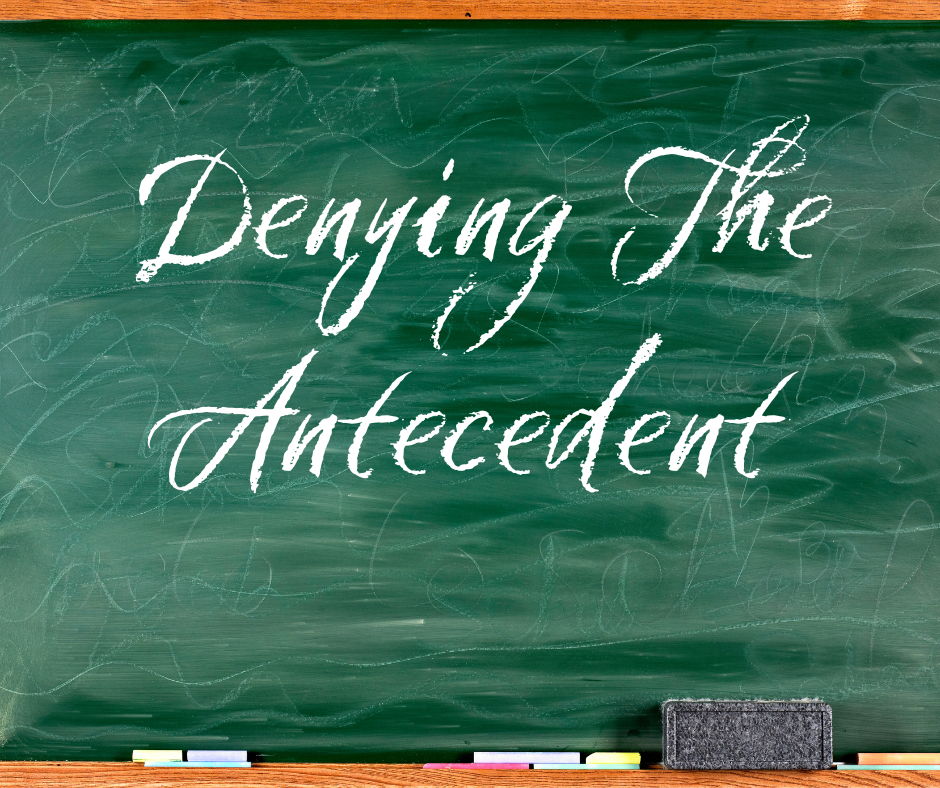This is part 26 of a series I’m writing on logical fallacies.We’ve looked at 23 different informal fallacies up until this point. There are
many more kinds of informal fallacies than the ones I’ve talked about in this series, but I haven’t really encountered any of them during my
debates with atheists, agnostics, or other Christians (on in-house issues), and as already stated, I wanted to look at the most common
fallacies that often appear in the context of Christian Apologetics. This is for 2 reasons: (1) to stay true to the theme of this blog. (2)
To give some actual examples of these fallacies in the context of religious debates so that my Christian readers can be on the lookout for
them.
If you’re new to this site, apologetics, or logic, and don’t know the difference between formal and informal fallacies, click on this link to watch a 4 minute video explaining the differences –> (https://www.youtube.com/watch?v=T_yFszI7Aso). I’ve also explained it in several of the blog posts in this series so far.
We’ve looked at 2 formal fallacies so far: The Fallacy Fallacy and Affirming The Consequent. Now let’s look at…
Denying The Antecedent
Denying the antecedent is a formal fallacy of inferring the inverse from the original statement. It is committed by reasoning in the form:
1: If P, then Q.
2: Not P.
3: Therefore, not Q.
Examples Of Denying The Antecedent
1: If Roger is a Molinist, then Roger affirms that people have libertarian free will.
2: Roger is not a Molinist.
3: Therefore, Roger does not affirm that people have libertarian free will.
The fact that Roger is not a Molinist doesn’t imply that he doesn’t believe humans possess libertarian free will. Arminians who are not Molinists affirm that humans have libertarian free will as do open theists, pelagians, and semi-pelagians [1]yes, my Calvinist readers, these 4 groups are not the same. One has to believe humans have LFW in order to be a Molinist but one does not have to be a Molinist in order to believe humans have LFW.
Another Example:
1: If Julia is a Mormon, then Julia is a heretic.
2: Julia is not a Mormon.
3: Therefore, Julia is not a heretic.
This argument likewise denies the antecedent and is thus, fallacious. Julia may not be a Mormon, but that doesn’t mean she isn’t a heretic. She might be a Jehova’s Witness, or a pelagian, or a Oneness Pentacostal. All of these are heresies, though for different reasons. The first is heretical because they deny the deity of Jesus Christ, the second is heretical because they espouse works based salvation, and the third is heretical because they deny The Trinity (while they believe God The Father, Jesus, and The Holy Spirit are all God, they deny that they’re 3 distinct persons). Julia could belong to any one of these groups and if she does then she’s a heretic despite not being a Mormon.
Conclusion
That does it for today’s blog post. Come back to Cerebral Faith tomorrow to read about another logical fallacy.
References
| ↑1 | yes, my Calvinist readers, these 4 groups are not the same |
|---|





